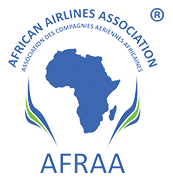Press Release: AFRAA launches interactive capacity-sharing portal
As part of initiatives and efforts for the industry restart and recovery from the impacts of COVID-19 pandemic, the African Airlines Association (AFRAA) has launched an interactive capacity-sharing portal for African airlines. The portal, which has been created under the auspices of the strategic partnership between AFRAA and ACC Aviation Group, will provide airlines access to market-leading services to support the development of Africa’s aviation industry. During the launch, a capacity building virtual workshop was held on 12 August 2020 to demonstrate the functionality of the tool to airlines.
Cooperation among AFRAA airlines is paramount for sustainability of the air transport industry. The portal, which is powered by ACC Aviation Group, gives airlines a platform to share capacity and increases daily utilization of aircraft. On one hand, operators have the opportunity to make offers of their aircraft availability and check the list of offered airplanes for ACMI (Aircraft, Crew, Maintenance and Insurance), dry lease sale and layover aircraft use. On the other hand, users can place requests for: ACMI, passenger charter, cargo charter and consultancy services. As airlines redefine their business models, network and fleet, AFRAA and ACC also avail restructuring consultancy services through the portal to assist with short and medium-term plans.
AFRAA’s recovery plan that was developed in April 2020 encompasses actions to navigate through COVID19 that are anchored on 9-pillars, these include: Governments, Regulators, Service providers, Customers, Maintenance, Cost management, Cargo operations, Workforce, Ensuring Business Continuity. The portal addresses actions under pillars on cost management, cargo operations and business continuity.
AFRAA’s Secretary General, Mr. Abdérahmane Berthé stated: “This platform is a tool to enhance cooperation among AFRAA members with the view to ensuring that African operators provide solutions to African challenges with win-win benefits for all operators involved in aircraft capacity sharing, during and well beyond the COVID-19. Currently, layover aircraft at certain airports provide strong opportunities for airlines to serve new routes without investing in additional airplanes.”
Airlines were invited to register and embark on the usage of the platform so as to harness the opportunities to improve operations. A second edition of the capacity building workshop will be held later in August 2020 for potential customers comprising of entities such as: service providers, civil aviation authorities, logistics entities and other stakeholders in the supply chain.
The full press release can be downloaded here
Source: AFRAA

